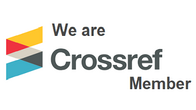The relationship of professional goals and the readiness in acquiring foreign language among advertising students: basis for foreign language training
Abstract
The present study aims to determine the relationship of professional goals and readiness of advertising students in learning foreign language to be the basis for foreign language training. This study also aims to identify the preferred teaching method for studying foreign language and the ASEAN native language that they are interested to learn. The descriptive research involved 157 first year advertising students from the Polytechnic University of the Philippines through a survey. After the data gathering and statistical treatment of data, it was found out that the respondents’ aspiration falls on material security and their multicultural aspiration is towards deeper understanding on other people. The respondents expressed the readiness to learn foreign language to better understand the values, ideals, and assumption in life of their foreign counterparts. Grammar translation approach was preferred for learning the language and the most preferred ASEAN native language are Mandarin, Chinese, Thai, and Bahasa Indonesia.
Keywords
Full Text:
PDFReferences
Gabbett, T., Jenkins, D., & Abernethy, B. (2010). Physical collisions and injury during professional rugby league skills training. Journal of Science and Medicine in Sport, 13(6), 578-583. doi:10. 1016/j.jsams.2010.03.007
Alemu, M. M. (2016). Multicultural team management in the context of a development work. Journal of Sustainable Development, 9(1). Deci, E. L., & Ryan, R. M. (2012). Self-determination theory.
Eurofound. 2016. Exploring the diversity of NEETs (Luxembourg, Publications Office of the European Union).
Gordon, Andrew. 2017. “New and Enduring Dual Structures of Employment in Japan: The Rise of Non-Regular Labor, 1980s–2010s.” Social Science Japan Journal 20 (1): 9–36. doi: 10.1093/ssjj/jyw042
Gorelova, J. N. (2014). Advertising language as a means of forming students’ cross-cultural competence. Procedia-Social and Behavioral Sciences, 152, 668-672.
International Labor Organization (2017). Addressing the situation and aspirations of youth
Khusainova, A. A., & Kudryavtseva, M. G. (2015). Model of Forming Socio-Cultural Identity of University Students VIA Learning a Foreign Language. Mediterranean Journal of Social Sciences, 6(1 S3), 327.
Ghose, N. (2010). Enhancing Global Competitiveness through Experiential Learning: Insights into Successful Programming. American Journal of Business Education, 3(7), 1-6.
Hachtmann, F. (2012). The effect of advertising-focused, short-term study abroad programs on students’ worldviews. Journal of Advertising Education, 16(1), 19-29.
Koppman, S. (2016). Different like me: Why cultural omnivores get creative jobs. Administrative Science Quarterly, 61(2), 291-331.
Kramsch, C. (1995). The cultural component of language teaching. Language, culture and curriculum, 8(2), 83-92.
Manstead, A. S. (2018). The psychology of social class: How socioeconomic status impacts thought, feelings, and behaviour. British Journal of Social Psychology, 57(2), 267-291.
Reeves, A., & de Vries, R. (2019). Can cultural consumption increase future earnings? Exploring the economic returns to cultural capital. The British journal of sociology, 70(1), 214-240.
Solutions for Youth Employment (S4YE). 2017. Toward employment solutions for youth on the move (Washington, DC).
Stein-Smith, K. (2016). The role of multilingualism in effectively addressing global issues: The sustainable development goals and beyond. Theory and Practice in Language Studies, 6(12), 2254-2259.
United Nations, Department of Economic and Social Affairs, Population Division. 2015. World Population Prospects: The 2015 Revision, Key Findings and Advance Tables. Working Paper No. ESA/P/WP.241.
UNESCO Institute for Statistics. 2014. Higher Education in Asia: Expanding Out, Expanding Up. Montreal: UNESCO-UIS. [Google Scholar]
Waters, Johanna. 2015. “Education Imperatives and the Compulsion for Credentials: Family Migration and Children’s Education in East Asia.” Children’s Geographies 13 (3): 280–293. doi: 10.1080/14733285.2015.972646 [Taylor & Francis Online], [Web of Science ®]
DOI: https://doi.org/10.26499/jbipa.v2i1.2402
Refbacks
- There are currently no refbacks.
Publisher:
Badan Pengembangan dan Pembinaan Bahasa, Kementerian Pendidikan dan Kebudayaan Republik Indonesia
Address: Jl. Daksinapati Barat 4 No.11, RT.11/RW.14, Rawamangun, Kec. Pulo Gadung, Kota Jakarta Timur, Daerah Khusus Ibukota Jakarta 13220 Phone: +62 (021) 4896558

Jurnal Bahasa Indonesia bagi Penutur Asing (JBIPA) is licensed under a Creative Commons Attribution-NonCommercial 4.0 International License.
View My Stats -->





